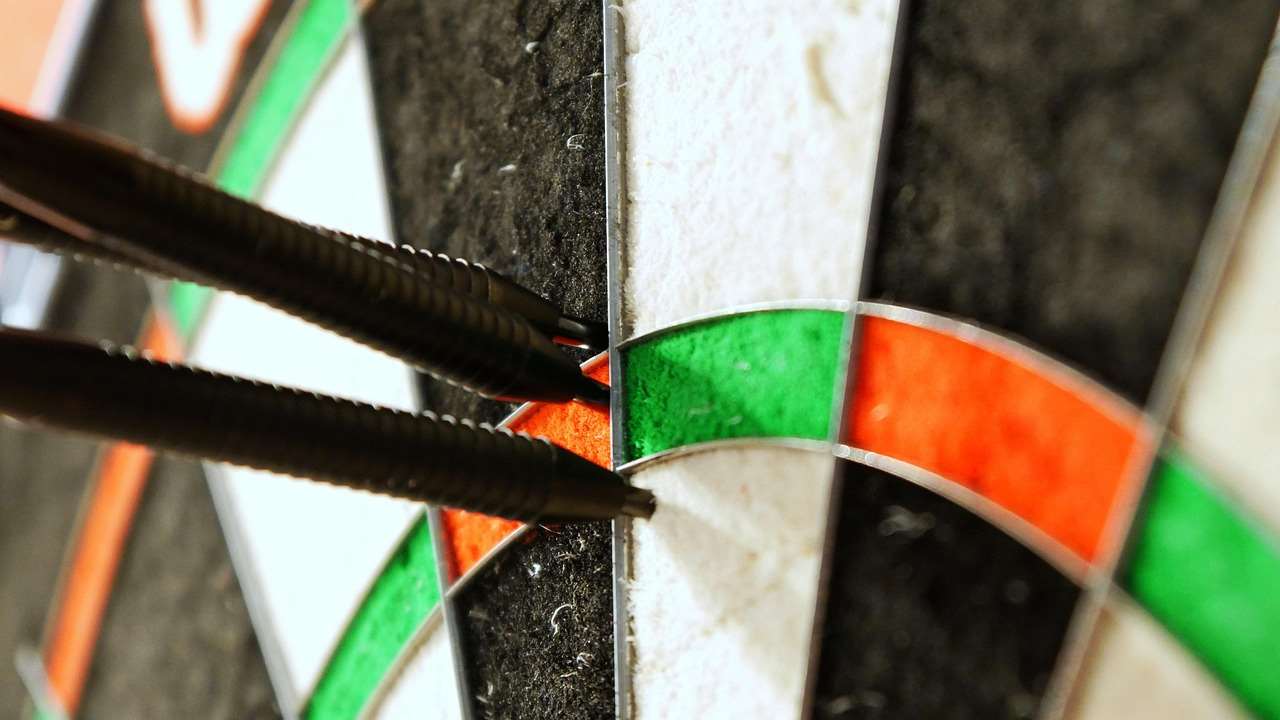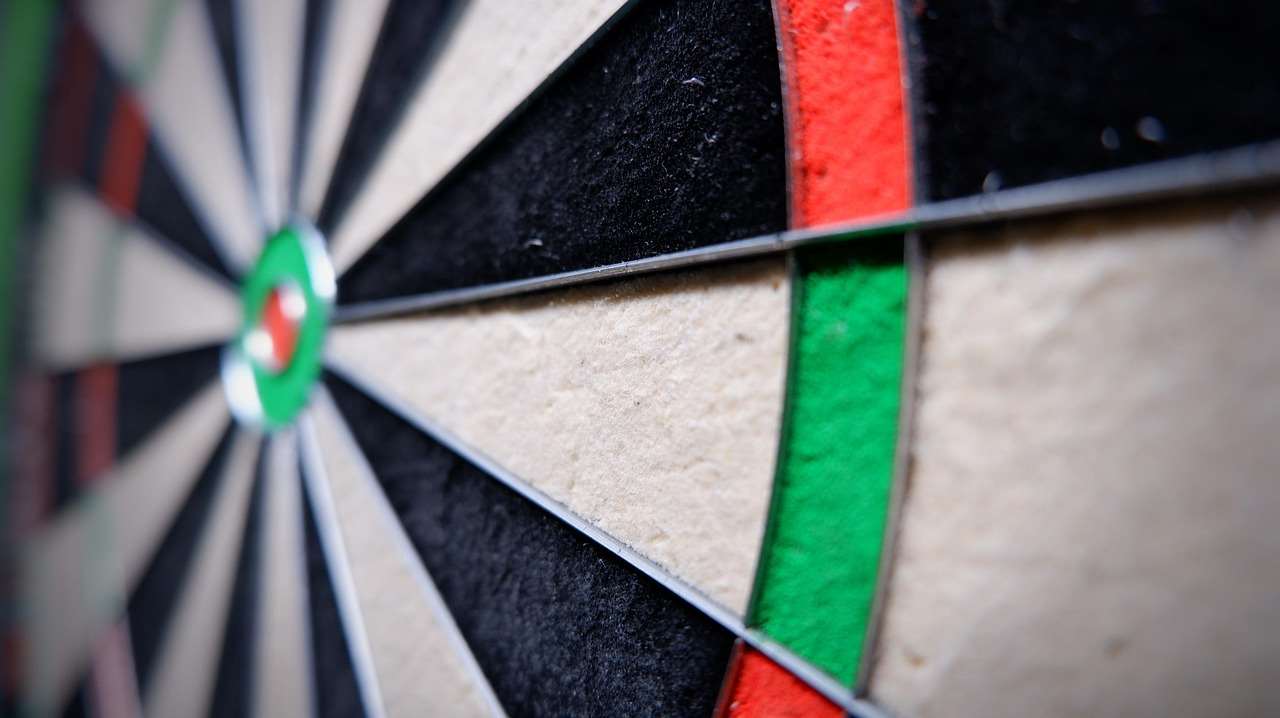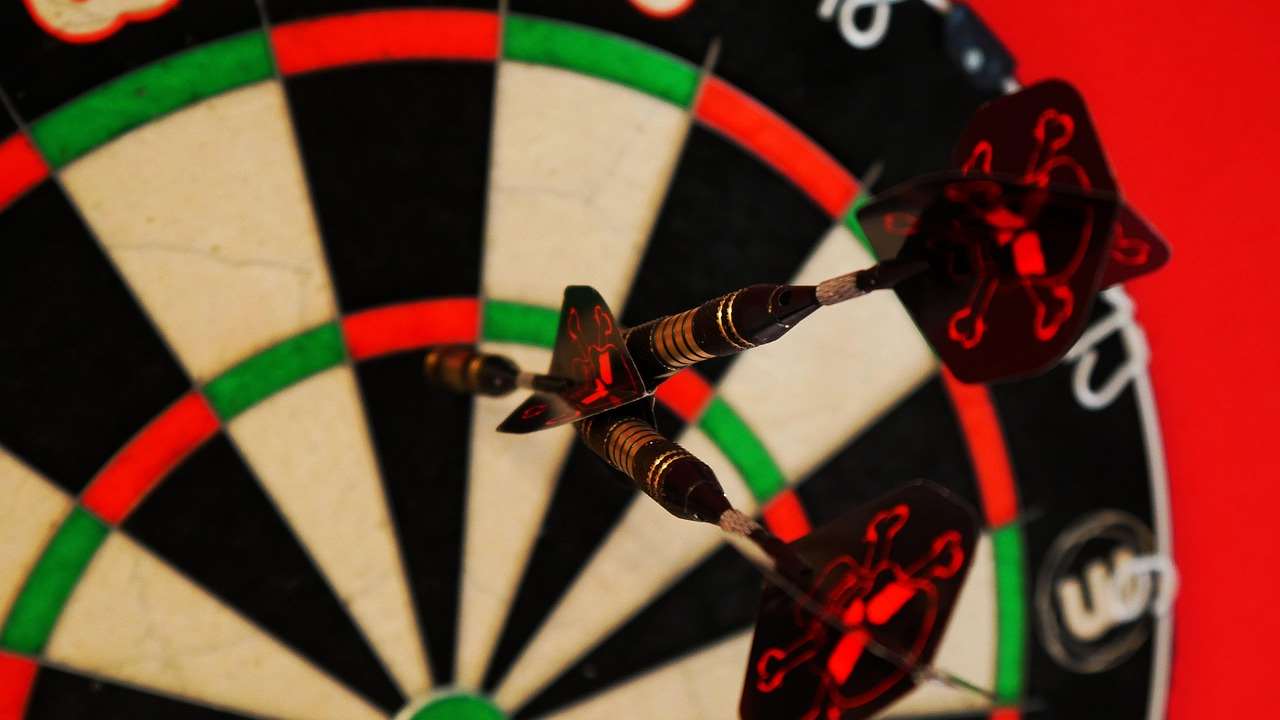Responsible Gambling During Tournaments requires a proactive approach, focusing on setting limits, understanding the odds, and recognizing potential problems. This article provides practical strategies for enjoying tournament betting responsibly, covering everything from pre-tournament preparation to post-event evaluation.
⚠️ Still Using Pen & Paper (or a Chalkboard)?! ⚠️
Step into the future! The Dart Counter App handles all the scoring, suggests checkouts, and tracks your stats automatically. It's easier than you think!
Try the Smart Dart Counter App FREE!Ready for an upgrade? Click above!
Understanding the Risks of Gambling During Tournaments
Gambling, particularly during large sporting tournaments or esports events, can be incredibly exciting. The thrill of competition, the potential for big wins, and the social aspect all contribute to the allure. However, it’s crucial to acknowledge the inherent risks associated with tournament betting. These risks aren’t just financial; they can also impact your mental and emotional well-being.
One of the primary dangers is the illusion of control. Many gamblers believe they have a system or strategy that gives them an edge. They might meticulously analyze statistics, follow expert predictions, and spend countless hours researching teams or players. While this preparation can enhance your enjoyment of the event, it doesn’t guarantee a win. Gambling outcomes are ultimately unpredictable, and even the most informed bets can lose. This is especially true in tournaments, where unexpected upsets and variance are common.
Another significant risk is chasing losses. This is a common trap where gamblers attempt to recoup previous losses by placing even larger bets. This can quickly spiral out of control, leading to significant financial difficulties. The emotional distress of losing can impair judgment, making it even harder to make rational betting decisions. Learning to recognize and avoid this behavior is crucial for Darts Betting And Fantasy Leagues Guide.
Finally, the social pressure and excitement surrounding tournaments can contribute to impulsive betting. Being swept up in the atmosphere can lead to placing bets you wouldn’t normally consider, exceeding your budget, or neglecting other responsibilities.

Setting Limits for Responsible Gambling During Tournaments
One of the most effective strategies for responsible gambling during tournaments is to set clear and realistic limits. These limits should encompass both the financial and time aspects of your gambling activities. Before the tournament even begins, take the time to establish boundaries that you are committed to upholding.
Financial Limits
Start by determining a budget specifically for tournament gambling. This should be an amount of money you can afford to lose without impacting your essential expenses or financial security. Once you’ve set this budget, stick to it religiously. Avoid the temptation to increase your bets, even if you’re on a winning streak. Consider using prepaid cards or dedicated bank accounts to manage your gambling funds and prevent overspending. It is also worth considering the Bookmaker Sponsorship Professional Darts and if this contributes to irresponsible gambling.
Time Limits
Gambling can be incredibly time-consuming, especially during tournaments. It’s easy to lose track of time when you’re engrossed in analyzing statistics, watching matches, and placing bets. To prevent this, set time limits for your gambling activities. Allocate specific periods for gambling and ensure you stick to these timeframes. Use timers or alarms to remind you when your session is over. Avoid neglecting other important aspects of your life, such as work, family, or hobbies. Time limits also help prevent impulsive betting driven by boredom or fatigue.
Pre-Commitment Strategies
Consider using pre-commitment strategies to reinforce your limits. This might involve telling a friend or family member about your budget and asking them to hold you accountable. Some gambling platforms also offer features that allow you to set deposit limits, spending limits, and time limits. Utilize these tools to enhance your self-control and ensure you stay within your boundaries.
Understanding the Odds and Making Informed Decisions
Responsible gambling during tournaments involves understanding the odds and making informed decisions, rather than relying on gut feelings or hunches. While luck certainly plays a role in gambling outcomes, a solid understanding of probability can significantly improve your chances of making smart bets. Before placing any wagers, take the time to research the teams, players, or events you’re betting on.
Research and Analysis
Thorough research can provide valuable insights into the likelihood of different outcomes. Analyze past performance, current form, head-to-head records, and any other relevant factors that could influence the result. Don’t rely solely on popular opinion or media hype. Form your own informed judgments based on factual information. This can be useful, for example, when considering the Betting Company Logos Darts Boards and how they may influence people.
Understanding Odds Formats
Familiarize yourself with different odds formats, such as decimal, fractional, and American odds. Learn how to convert between these formats and calculate the implied probability of each outcome. This will allow you to compare odds across different betting platforms and identify the most favorable opportunities. Understanding the odds also helps you to assess the value of a bet. Is the potential payout commensurate with the risk involved? Are you getting fair odds compared to the actual probability of the outcome?
Avoiding Biases
Be aware of your own cognitive biases, which can distort your perception of risk and influence your betting decisions. Common biases include the availability heuristic (overestimating the likelihood of events that are easily recalled), the confirmation bias (seeking out information that confirms your existing beliefs), and the gambler’s fallacy (believing that past events influence future outcomes in independent events). Actively challenge your biases and seek out objective information to make more rational decisions. It is also important to see How Betting Companies Sponsor Darts and its impact on responsible gambling.

Recognizing Problem Gambling Behaviors
One of the most critical aspects of responsible gambling during tournaments is being able to recognize the signs of problem gambling, both in yourself and in others. Problem gambling, also known as gambling disorder, is a serious condition that can have devastating consequences on your financial, emotional, and social well-being.
Key Warning Signs
Several key warning signs may indicate that you or someone you know is developing a gambling problem. These include:
- Preoccupation with Gambling: Spending an excessive amount of time thinking about gambling, planning your next bet, or reliving past gambling experiences.
- Chasing Losses: Trying to recoup previous losses by placing larger bets.
- Lying About Gambling: Concealing your gambling activities from friends and family members.
- Neglecting Responsibilities: Sacrificing work, school, or family obligations in order to gamble.
- Borrowing Money to Gamble: Resorting to loans, credit cards, or other forms of borrowing to finance your gambling.
- Feeling Restless or Irritable: Experiencing withdrawal symptoms, such as restlessness, irritability, or anxiety, when trying to cut back or stop gambling.
- Gambling as an Escape: Using gambling as a way to cope with stress, anxiety, or depression.
Self-Assessment Tools
If you’re concerned that you might have a gambling problem, consider using a self-assessment tool. These tools typically consist of a series of questions designed to assess your gambling behavior and identify potential warning signs. Online resources, such as the National Council on Problem Gambling website, offer a variety of self-assessment tools. These resources can help with understanding the Betting Sponsorship Impact On Darts as well as your personal gambling habits.
Seeking Help
If you recognize any of these warning signs in yourself or someone you know, it’s important to seek help immediately. Problem gambling is a treatable condition, and there are many resources available to support recovery. Consider reaching out to a problem gambling hotline, attending a Gamblers Anonymous meeting, or consulting with a mental health professional who specializes in addiction. Early intervention is crucial for preventing the devastating consequences of problem gambling. Don’t be afraid to seek assistance; it is a sign of strength, not weakness.

Strategies for Maintaining Control During Live Tournament Betting
Live, in-play betting can be incredibly exhilarating, but it also presents unique challenges to responsible gambling during tournaments. The fast-paced nature of live betting can lead to impulsive decisions and increased risk-taking. To maintain control during live tournament betting, it’s essential to implement specific strategies that promote rational decision-making.
Pre-Game Preparation
Before engaging in live betting, conduct thorough pre-game preparation. This includes researching the teams or players involved, analyzing their recent performance, and identifying key factors that could influence the outcome. Having a solid understanding of the event will help you make more informed decisions when the action unfolds.
Setting Stop-Loss Limits
Establish stop-loss limits for each live betting session. A stop-loss limit is a predetermined amount of money that you’re willing to lose before you stop betting. Once you reach your stop-loss limit, immediately cease betting, regardless of whether you feel you’re about to turn your luck around. This will help you prevent catastrophic losses and maintain control over your finances.
Avoiding Emotional Betting
Live betting can be highly emotional, especially when you have a personal connection to the teams or players involved. Avoid making betting decisions based on emotions such as excitement, anger, or frustration. Instead, rely on your pre-game analysis and stick to your predetermined strategy. Emotional betting often leads to irrational decisions and increased risk-taking.
Taking Breaks
Take regular breaks during live betting sessions. Step away from the screen, stretch your legs, and clear your head. This will help you maintain focus and avoid fatigue, which can impair your judgment. Breaks also provide an opportunity to reassess your strategy and ensure you’re still making rational decisions.

Post-Tournament Evaluation and Learning
Responsible gambling during tournaments doesn’t end when the final whistle blows. It’s crucial to conduct a post-tournament evaluation to assess your betting performance, identify areas for improvement, and reinforce responsible gambling habits. This process can help you learn from your mistakes, refine your strategies, and ultimately become a more disciplined and successful gambler. Consider, for example, the Sponsorship In Major Darts Tournaments and how this might have affected your choices.
Reviewing Your Bets
Start by reviewing your bets. Analyze each wager you placed, noting the outcome, the rationale behind your decision, and any factors that influenced your performance. Identify any patterns or trends in your betting behavior. Did you tend to make better decisions under certain circumstances? Were there specific types of bets that consistently led to losses? Did Betting Company Logos Player Shirts influence your choices?
Analyzing Your Emotions
Pay close attention to your emotional state during the tournament. Were you able to maintain control and make rational decisions, or did your emotions get the better of you? Identify any triggers that led to impulsive or reckless betting. Understanding your emotional responses to gambling is crucial for developing strategies to manage them in the future.
Adjusting Your Strategy
Based on your evaluation, adjust your strategy for future tournaments. Refine your research methods, improve your understanding of the odds, and develop more effective strategies for managing your bankroll and emotions. Continuously learning and adapting is essential for long-term success in gambling. The goal is to learn and improve, not to dwell on past losses.
Celebrating Successes and Learning from Failures
Acknowledge your successes and celebrate your wins, but don’t let them lead to overconfidence. Similarly, learn from your failures and avoid repeating the same mistakes. Approach each tournament as a learning opportunity and strive to improve your gambling skills and discipline. Responsible gambling is a journey, not a destination. It requires ongoing effort, self-awareness, and a commitment to maintaining control.

Conclusion
Practicing **responsible gambling during tournaments** is crucial for maintaining both financial and personal well-being. By setting limits, understanding the odds, recognizing problem gambling behaviors, and implementing strategies for control, you can enjoy the excitement of tournament betting without succumbing to its potential risks. Remember to always prioritize your health and happiness, and never gamble more than you can afford to lose. If you think you might have a gambling problem, seek help immediately. Stay informed, stay in control, and enjoy the games responsibly.
Take control of your gambling experience today! Visit [Link to a responsible gambling resource, e.g., National Council on Problem Gambling] to learn more about responsible gambling practices and available resources.
Hi, I’m Dieter, and I created Dartcounter (Dartcounterapp.com). My motivation wasn’t being a darts expert – quite the opposite! When I first started playing, I loved the game but found keeping accurate scores and tracking stats difficult and distracting.
I figured I couldn’t be the only one struggling with this. So, I decided to build a solution: an easy-to-use application that everyone, no matter their experience level, could use to manage scoring effortlessly.
My goal for Dartcounter was simple: let the app handle the numbers – the scoring, the averages, the stats, even checkout suggestions – so players could focus purely on their throw and enjoying the game. It began as a way to solve my own beginner’s problem, and I’m thrilled it has grown into a helpful tool for the wider darts community.